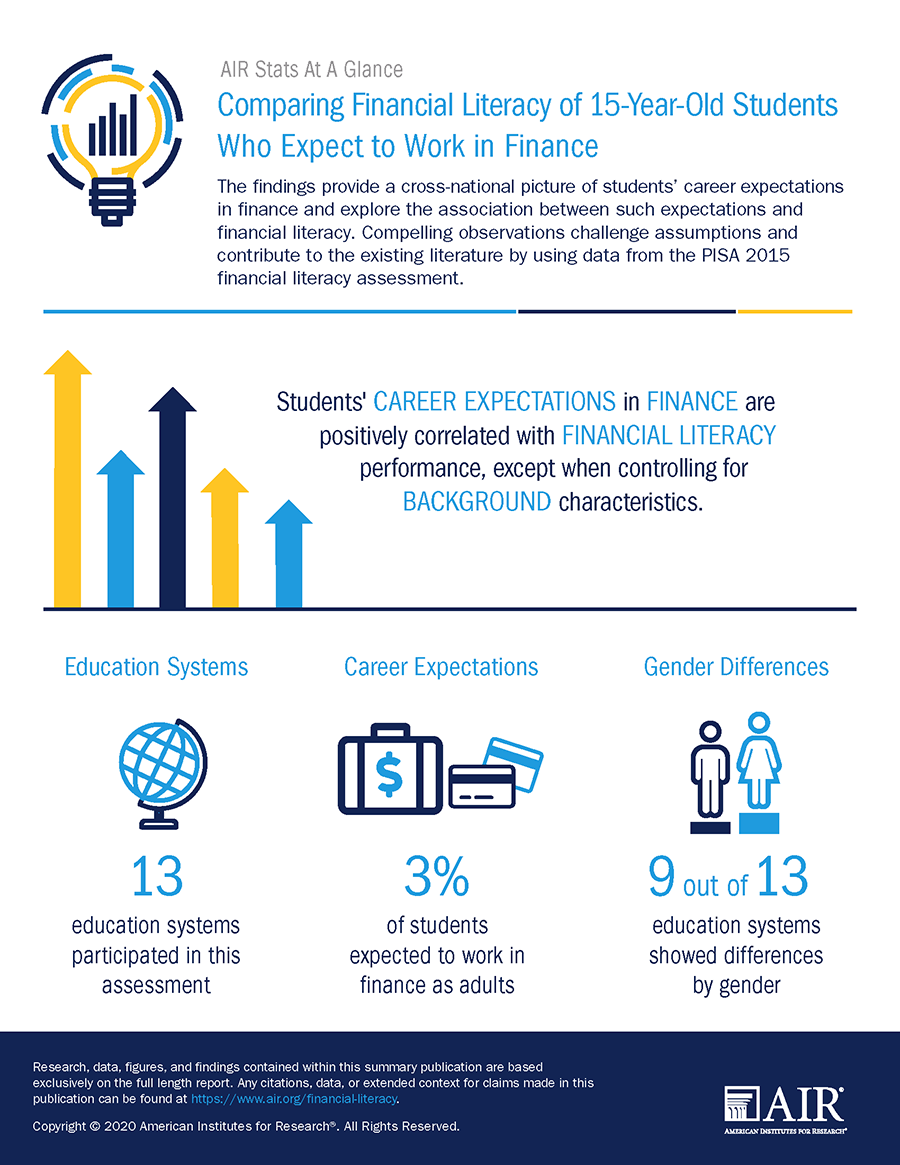A Comparative Profile of 15-Year-Old Students Who Expect to Work in Finance
Students’ career expectations have been found to be highly predictive of students’ actual career choices and outcomes later in life. Moreover, the literature shows that students’ career expectations to some extent are based on the resources available to them, as socioeconomic background, including parental occupation, is associated with career expectations. Other factors such as gender are also found to be associated with students’ career expectations.
The financial sector’s significance in the global economy is unquestionable. An increase in financial literacy skills can improve financial decision making and positively impact individuals and households. With the increasing significance of the financial sector and the recognition of financial literacy as an essential life skill, it is important to compare—in a global context—students’ career expectations in finance and explore their association with students’ financial literacy.
This study, consisting of a Stats-at-a-Glance, a research brief, and a research note, compares 15-year-old students who reported career expectations in finance in 13 education systems that participated in the financial literacy assessment of the 2015 Program for International Student Assessment (PISA). It explores selected demographic characteristics of students expecting careers in finance, and the association between students’ finance career expectations and their financial literacy performance.
Key Findings
The findings provide a cross-national picture of students’ finance career expectations. The analysis found that:
- Across the 13 participating education systems, 3 percent of 15-year-old students expected to work in finance as adults. The percentage seems low given that 13 percent of the 15-year-old students had at least one parent working in finance.
- In some education systems, the analysis also found differences by gender or socioeconomic status in the percentage of students who expected to work in finance.
- Students’ career expectations in finance did not correlate with their financial literacy performance in any education system after controls were added for parental occupation, gender, socioeconomic status, and performance in mathematics and reading. Thus, students’ career expectations are not a strong predictor of their financial literacy performance when accounting for these background characteristics.

